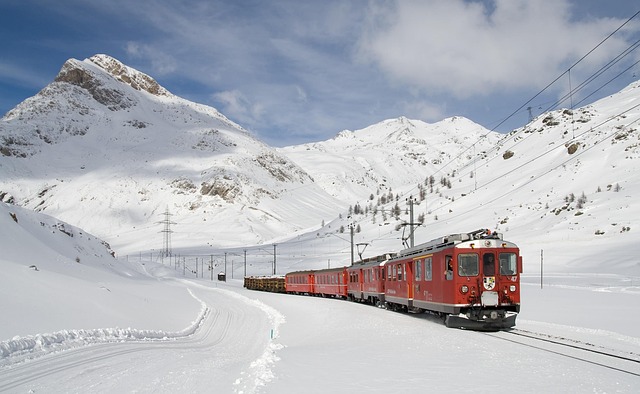Intense logging in Junction City endangers its agricultural sector by causing severe soil erosion, disrupting water resources crucial for irrigation, and threatening local biodiversity. This puts at risk the city's economy heavily reliant on agriculture while balancing job creation with ecological preservation to safeguard long-term sustainability of Junction City agriculture.
“Junction City, known for its vibrant agriculture, faces a complex dilemma with extensive logging practices. This article delves into the multifaceted impact of logging on the region’s ecological and economic health. From soil degradation and water scarcity affecting local farms to habitat loss for wildlife and the delicate balance between job creation and environmental sustainability, each section reveals a crucial aspect of Junction City’s unique challenge. Understanding these effects is vital for preserving the city’s agricultural heritage.”
- Logging's Effect on Junction City's Soil Health
- Water Resources: A Concern for Local Agriculture
- Loss of Habitat and Its Impact on Wildlife
- Economic Considerations: Jobs vs. Environmental Sustainability
Logging's Effect on Junction City's Soil Health

Logging has had a significant impact on Junction City’s soil health, affecting its agricultural potential. The removal of vast forests has led to increased soil erosion, as tree roots no longer hold the earth in place. This is particularly problematic for areas with steep slopes, where logging can cause severe degradation and even landslides. Over time, this erosion depletes the fertile topsoil that is essential for farming.
The disruption of natural ecosystems also disturbs nutrient cycling and water retention. Trees play a vital role in maintaining soil fertility by providing organic matter through decomposition. With logging, these organic layers are removed, leaving behind barren land that struggles to support robust plant growth. Junction City’s agricultural success depends on healthy, fertile soils, so addressing these logging-induced issues is crucial for the long-term sustainability of local farming practices and food production.
Water Resources: A Concern for Local Agriculture

Junction City’s agricultural sector, renowned for its vibrancy, faces a significant challenge due to the impact of logging on local water resources. Deforestation disrupts the natural water cycle, leading to reduced stream flow and altered watershed dynamics. These changes directly affect irrigation practices, as farmers in Junction City rely heavily on water from nearby rivers and streams for crop cultivation.
The extraction of timber also contributes to soil erosion, which can wash away essential nutrients, further compromising the quality of water available for agriculture. As a result, local farmers may experience decreased crop yields and increased costs associated with water treatment and conservation. Understanding these interconnected issues is crucial in developing sustainable practices that safeguard both Junction City’s agricultural economy and its precious water resources.
Loss of Habitat and Its Impact on Wildlife

The expansive forests surrounding Junction City have long been a vital habitat for numerous species, contributing to the rich biodiversity of the region. However, logging activities pose a significant threat to this delicate balance. As trees are felled and cleared for agricultural expansion, wildlife finds their homes and food sources rapidly diminishing. This disruption can lead to the displacement or decline of local populations, disrupting the intricate web of ecosystems that thrive in these areas.
The impact extends beyond individual species; it reverberates through the entire ecosystem. For instance, birds may struggle to find suitable nesting sites, while deer and other herbivores could face reduced food availability. This loss of habitat not only affects wildlife but also has implications for the agricultural sector in Junction City. Sustainable practices are essential to ensure that logging doesn’t outpace reforestation efforts, maintaining a healthy balance between human activities and the preservation of this vital natural landscape.
Economic Considerations: Jobs vs. Environmental Sustainability

The economic landscape of Junction City, heavily influenced by its agricultural sector, finds itself at a crossroads when confronted with logging activities. On one hand, logging provides employment opportunities and contributes significantly to the local economy, particularly in communities that have relied on this industry for generations. The prospect of job creation and steady income can be enticing, especially for remote areas seeking economic diversification. However, the environmental sustainability of intensive logging practices is a growing concern. Junction City’s lush forests and diverse ecosystems support a thriving agricultural sector, including sustainable farming methods that depend on these natural resources. Balancing the need for jobs against preserving the city’s ecological integrity is a delicate task, one that requires careful consideration and innovative solutions to ensure both the economic well-being and environmental health of the region in the long term.






